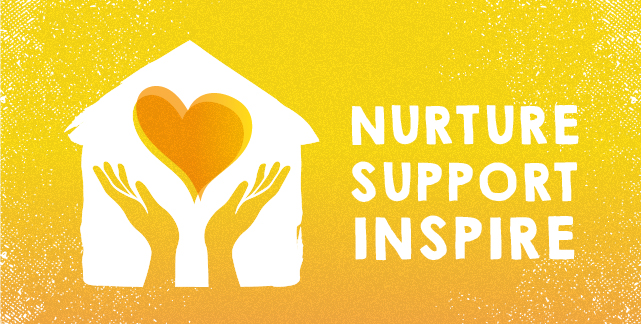
“With the help of their Care Coordinators, Host Families promote independent growth, social connections and life skill development using the foundation of a stable and supportive family home”
Become a Host Family
Thank you for considering becoming a Host Family at NARSF Programs!
At NARSF Programs we recognize the great potential of Host Families for offering quality care in a family home environment. We appreciate the uniqueness family homes bring to the model of support and stabilization services offered at Transitions Withdrawal Management and Supportive Recovery Program.
We acknowledge the strength and commitment Host Families bring to their role as essential in making this program successful. As an old saying goes, it takes a village to raise a child, as well as good mental and physical health of caregivers to meet the needs of youth who require understanding, care, patience and security.
What is a Host Family?
Host Families provide a safe and supportive residence for youth to abstain from substance use. The provision of a safe, nurturing and supportive home environment is critical to helping youth develop stability.
What exactly does a Host Family do?
Host Families have an opportunity to make a difference in a young person’s life by developing a mutually engaging relationship with an adult, namely you! Youth are placed at the host family home and over time, the youth and host family work to develop a unique and rich tapestry of shared memories from focusing on supporting the young person restore physical and psychological health while gaining a new perspective about their life.
Host Families are a valuable resource to the Transitions team with daily opportunities to offer youth guidance and coaching in the development or enhancement of life skills.
Host Families support youth ages 12 – 19 who are involved with the Transitions Program at NARSF. Host Families support youth any where from 5 days to 5 months in duration.
There are two distinct phases of care provided during a youth’s stay. During the first phase, which lasts for 5 -10 days, one adult from the Host Family must always be available to the youth. During the second phase, youth begin active involvement in the community (school, work, training or group programming) and Host Families are asked to have one adult who could respond to the youth during their time out of the home. Youth are encouraged to progressively take more responsibility and experience freedom while focusing on the goals.
What are the requirements needed to become a Host Family?
Essentials:
- 21 years or older
- Successful completion of a Criminal Record Check for working with children and vulnerable adults
- Appropriate accommodation that meets NARSF’s standards for residential care
- Valid driver’s license, reliable vehicle and appropriate insurance
- First Aid Certification, Non-violent Crisis Intervention Certification (training funded by NARSF)
- Successfully passing a NARSF Home Assessment and Safety Inspection
What are important qualities to have as a Host Family?
- Good mental and physical health to meet the needs of youth who require understanding and security
- Enjoyment of parenting and awareness of own parenting style
- Awareness of adolescent development, mental health, substance use, and trauma
- Able to actively listen as well as set clear boundaries
- Experience working as part of a team
- Able to build and/or follow routine to promote stability as well as recognize when flexibility is needed
- A sense of humour!
What kinds of support do Host Families receive?
Host Families receive direct support from the Transitions team through:
- Regular 1-on-1 support available Monday-Friday, 9-5 and emergency support after hours
- Weekly meetings (in the home) between Host Families, youth and their Care Coordinator
- Quarterly training in the areas of teen development, substance use, trauma-informed care, communication strategies and more
- Weekend recreation group for youth (up to 4 hours)
- Weekly group events for all Host Families and youth, facilitated by the Transitions team
Financially:
- Host Families receive a steady monthly income, plus per diem rates when youth are placed in their home. These funds go towards daily living necessities of youth
- Monthly allowance for respite
- With each one-year contract, Host Families can expect four weeks where the home is closed
What is the process of becoming a Host Family?
STEP 1: Submit Transitions Host Family Application Form. Application form can be viewed and downloaded here: PDF Fillable Word Docx
STEP 2: NARSF Programs Ltd. reviews all completed applications. Applicants are informed of the following outcome(s) (a) invite applicant for initial interview or (b) terminate process
STEP 3: Successful applicants will complete a criminal record review (CRC) for the vulnerable sector
STEP 4: Upon successful completion of a CRC, applicants will participate in a Home Study
STEP 5: Upon successful completion of the Home Study, applicants meet with NARSF’s Director to review and sign a Host Family Contract
(please note: this process may take up to 3 months to complete).
If you have additional questions please call the Transitions office at 250-714-8167
For more about youth and substance use check out the following resources:
Kelty Mental Health (Substance Use)
Canadian Institute for Substance Use Research
Transitions Host Family Application form: PDF Fillable Word Docx
